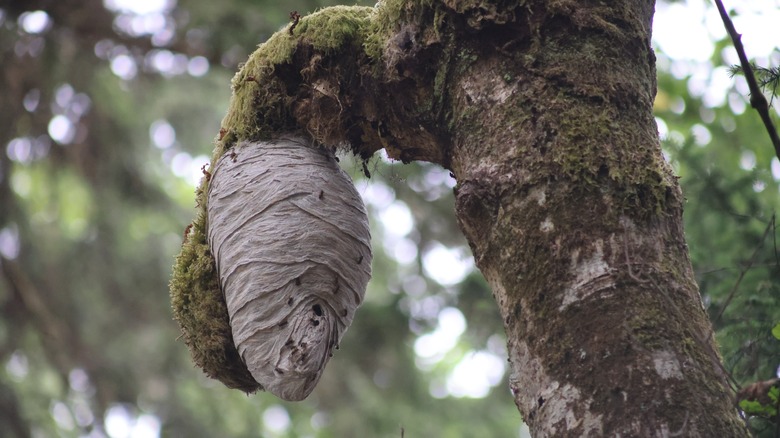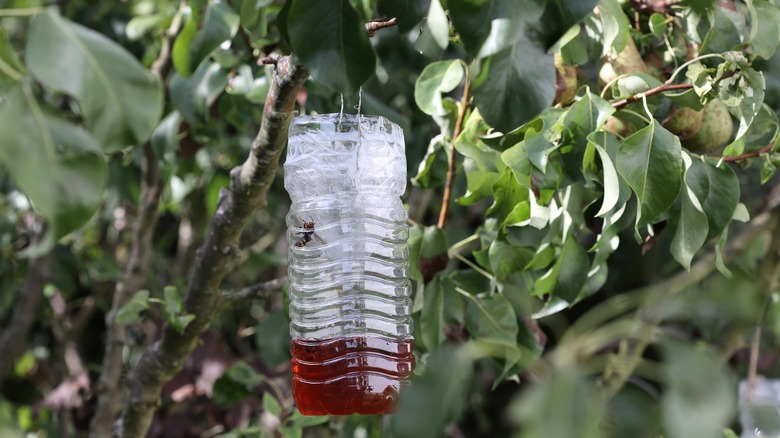How To Eliminate A Hornets Nest Without Using Chemicals
Hornets are particularly tenacious pests, owing to their tendency to establish their colonies with a yearly life cycle. Many yards are absolute breeding grounds, offering multiple spots that are highly conducive to hornet nest construction, including overgrown bushes and secluded corners near your home that provide them with a protected haven. Continuous monitoring of your property and employing effective eradication methods is essential for ensuring that these insects do not make a return.
To eliminate a hornet's nest without resorting to harmful chemicals, a variety of eco-friendly methods are available to help you reclaim your outdoor living spaces safely. These green approaches encompass a diverse set of alternatives, such as crafting DIY traps using household materials or deploying natural repellents like peppermint oil, which have proven to be effective in deterring hornets without damaging the environment. These are responsible choices that prioritize both human and ecological well-being.
While employing any of these environmentally-conscious methods to manage hornets, it's vital to be both persistent and vigilant, ensuring you apply the right safety measures to avoid being stung.
Trapping hornets effectively
To effectively tackle the hornet issue, you have options. You can buy a hornet or wasp trap from a hardware store, which usually has a container and an attractant like sugary water to draw the hornets in. Once they enter the container, the trap's unique design makes it difficult for them to escape, eventually causing them to perish. However, crafting a homemade trap is quite straightforward and equally effective if you want to save money. Grab a 2-liter plastic soda bottle and slice it in two. In the bottom section, combine sugar, vinegar, and soap. Mix it all together and invert the top portion of the bottle, setting it into the lower section to create a funnel-like shape. Position this homemade hornet trap in locations where you've observed hornets hanging around, and you'll see their numbers dwindle before long.
If you prefer preventive measures, consider utilizing the power of botanical oils, specifically peppermint, as hornets loathe the aroma. Create your hornet-repellent spray by mixing water, a few drops of peppermint oil, and dish soap in a glass spray bottle. Glass is preferable because essential oils can break down plastic containers. Shake the mixture well, label the bottle for easy identification, and your peppermint spray is ready for action. Use this spray around areas where hornets tend to congregate or build their nests, and you'll find it an effective, natural deterrent.
Preventing future infestations
Prevention is certainly the key to managing hornets, and this starts with good sanitation habits. A garden teeming with aphids and tiny flies serves as a feast for hornets. Regularly mowing your lawn and keeping shrubs and landscaping maintained gives your yard a well-kept appearance and creates an environment that's less inviting to hornets. The lack of tall grass and overly dense shrubs eliminates potential nesting sites, making it less likely for hornets to settle down. Additionally, you should always keep your garbage cans sealed tightly. Hornets are notorious for being attracted to food waste, and this is particularly true in the summer and fall months when fruit trees are in full bloom. If your yard features fruit trees, promptly remove any fallen fruit. This keeps your yard tidy and reduces the attraction for hornets.
Lastly, be extra mindful of floral scents in your garden, especially if you enjoy spending time outdoors. Heavily scented flowers can serve as magnets for hornets and other pests. It's best to place them away from dining areas or frequently used walkways. You can still have your aromatic flowers; just place them in areas where human activity is minimal. Your landscaping choices matter more than you may think. By incorporating these practical, preventive measures, you take control of your hornet situation before it even starts. And the best part? You accomplish this without resorting to harsh chemical treatments.


